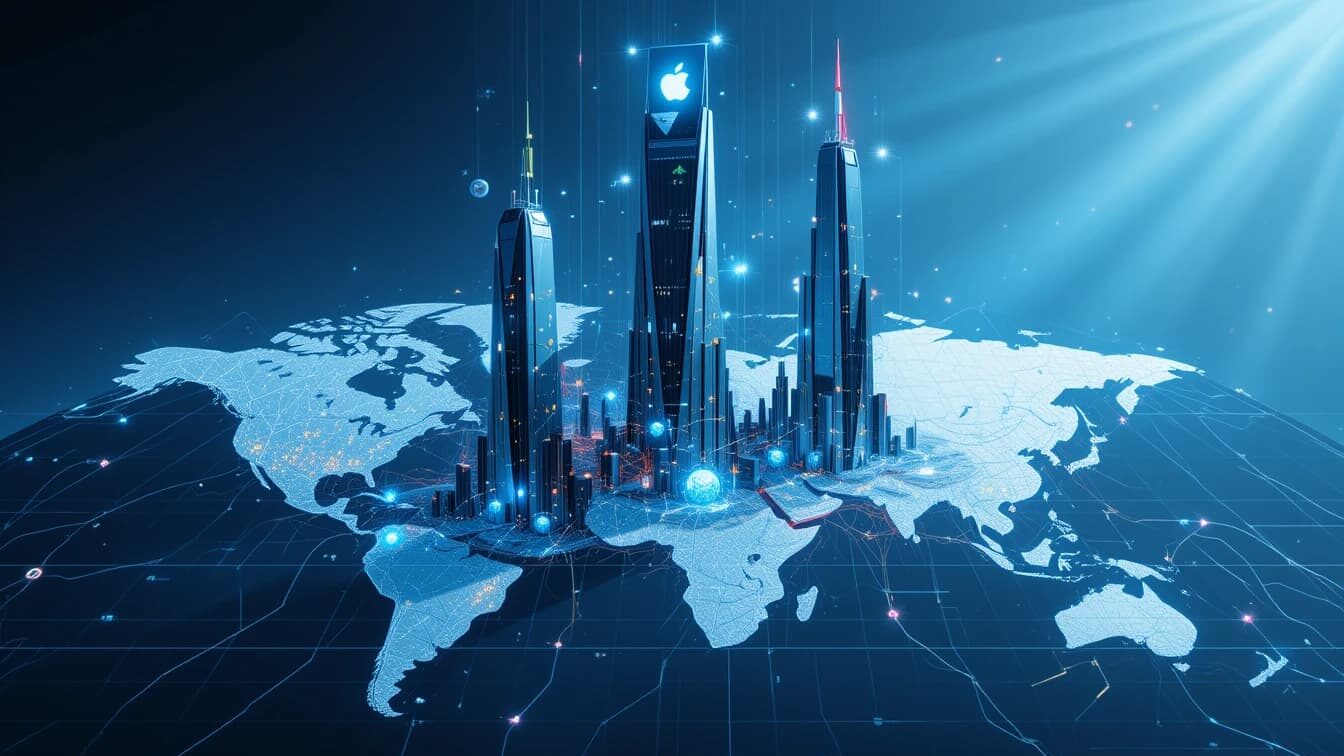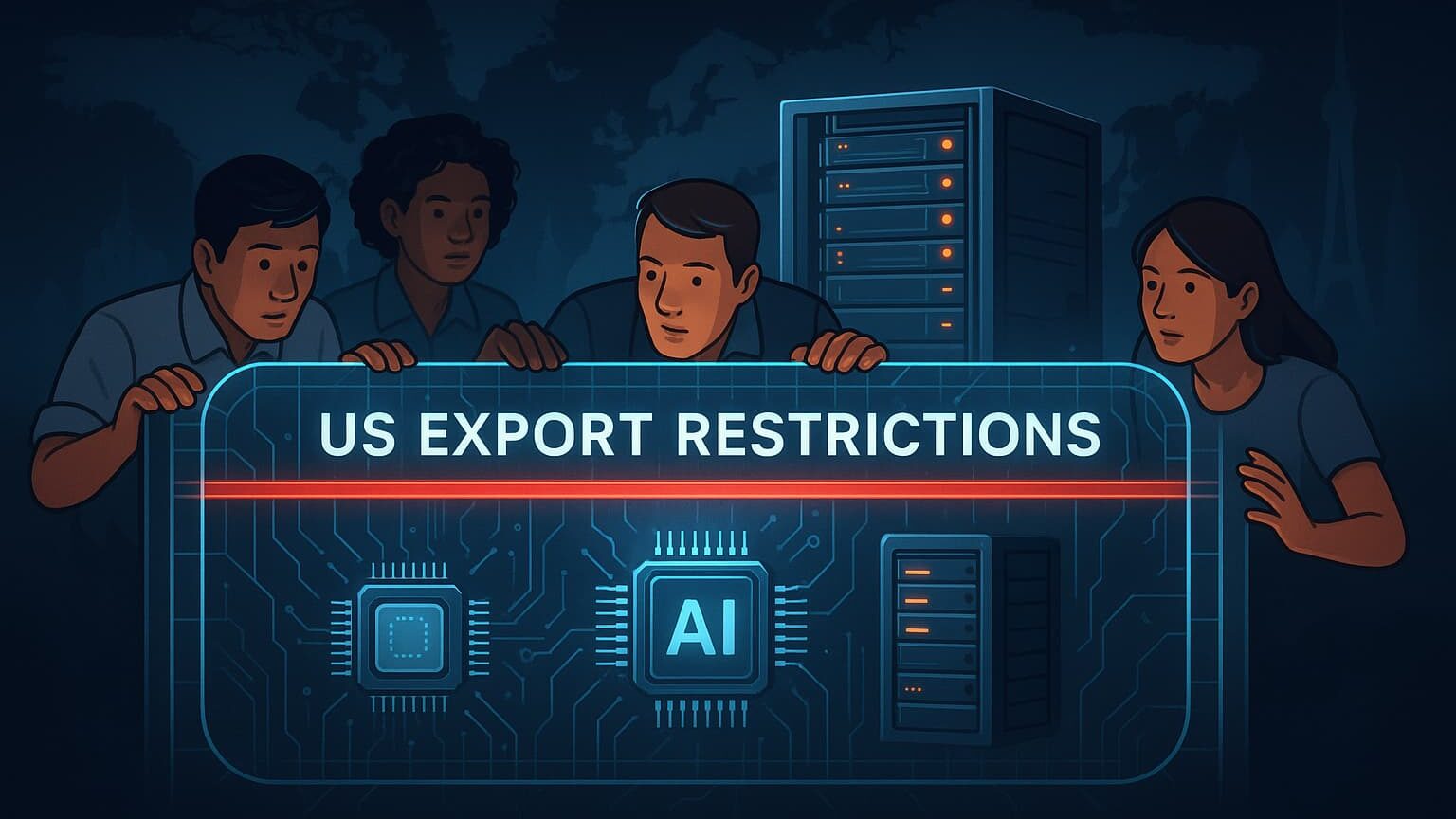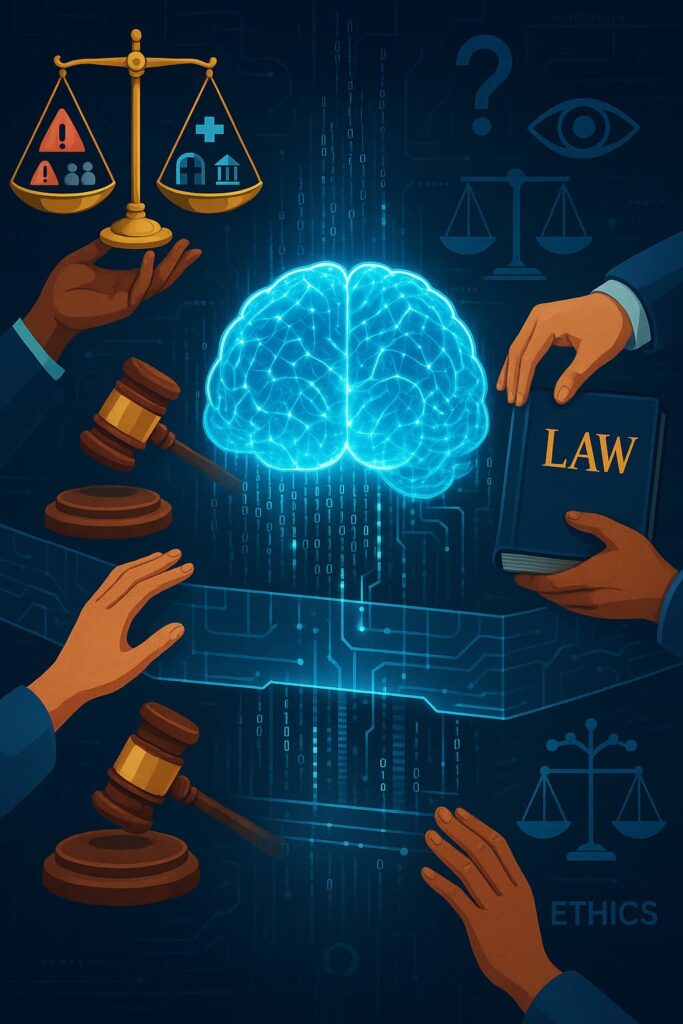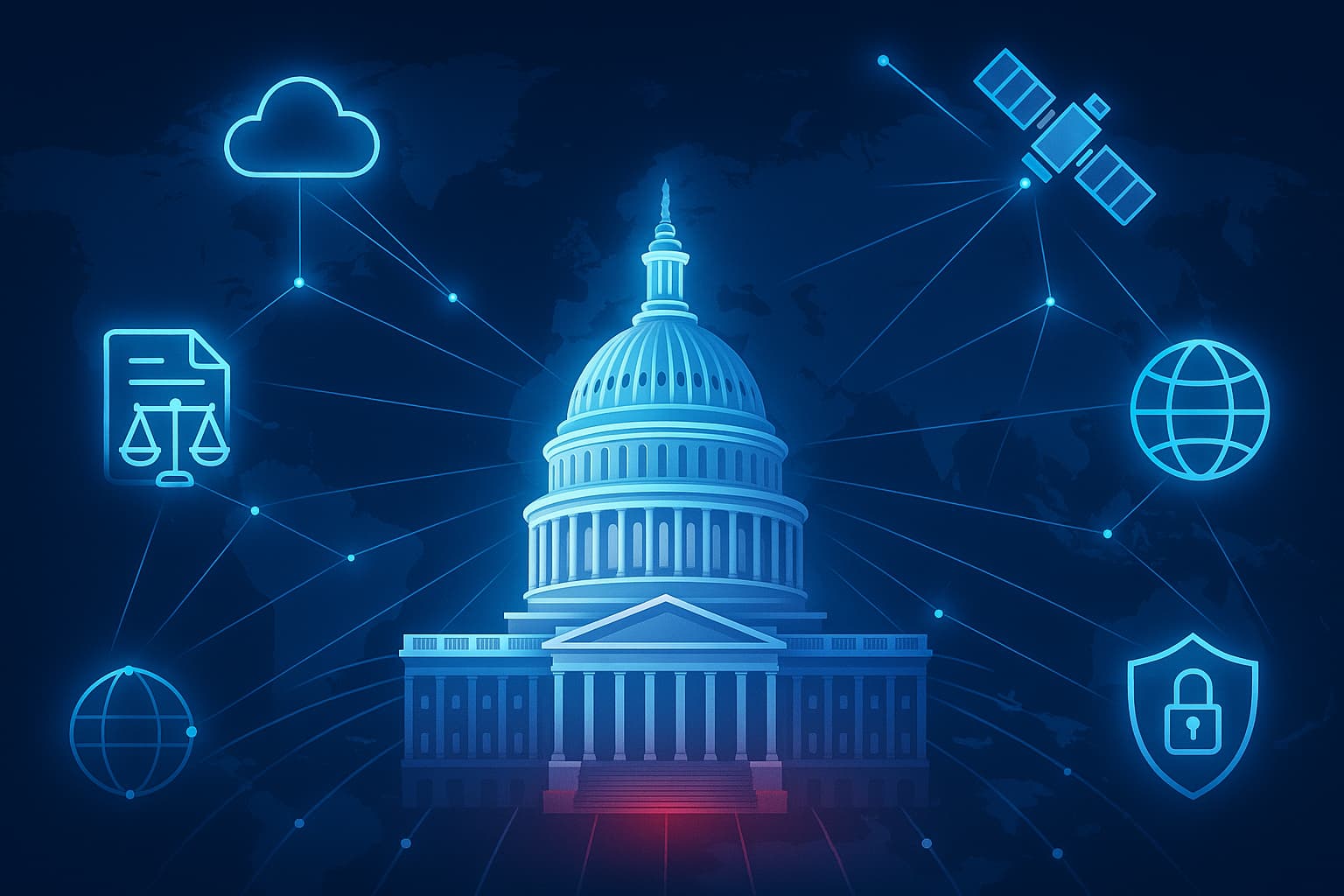In today’s interconnected digital world, U.S. tech policies extend beyond national borders and influence countries around the globe. American digital regulations, including data privacy, AI governance, antitrust decisions, and export controls, are setting global standards that affect businesses, consumers, and governments worldwide.
The Power of US Tech Giants and Regulatory Reach

The United States is home to the world’s largest technology companies, like Google, Apple, Amazon, Meta, and Microsoft. Tech policies of the U.S lawmakers often go beyond national concerns and strongly influence the global markets.
The role of these tech giants is also critical in facilitating the rise of remote work worldwide, especially in how large tech companies have enabled businesses to transition to digital platforms and remote work environments.
Data Privacy & Cross-Border Flow – A Global Tug of War

Even without a federal-level GDPR-like law, American data privacy practices affect users worldwide. Policies on cross-border data flows, cloud computing, and user data collection influence how global companies function.
In the same way, understanding how data privacy affects financial transactions can help in recognizing and preventing online financial scams, as these concerns often overlap in terms of user security and regulatory standards.
For further insights on international data protection regulations, check out the European Commission’s Data Protection Page, which provides comprehensive information about GDPR and its global implications.
Export Restrictions and Global Innovation

The US has implemented export controls on technologies like semiconductors and AI chips, especially towards countries like China. These policies influence global tech supply chains, manufacturing, and even innovation timelines in developing economies.
Similarly, export restrictions impact industries like cryptocurrency, which is evolving under complex regulations that limit global innovation in the blockchain and digital finance sectors. For a deeper dive into the current state of the cryptocurrency market and its investment potential, check out Should You Invest in Bitcoin Now?.
For a deeper understanding of export regulations, consult the Bureau of Industry and Security (BIS) at the U.S. Department of Commerce.
AI Regulation and Ethical Concerns

With AI evolving rapidly, the US is crafting frameworks for AI regulation, including risk assessments, transparency standards, and ethical use guidelines. These guidelines often act as a reference point for other nations building their own AI laws.
Emerging technologies like AI are increasingly being integrated into productivity apps for remote workers, helping remote workers maximize their efficiency by automating tasks and streamlining workflows.
For a comprehensive analysis of global AI policy, visit the OECD AI Policy Observatory, which offers detailed resources on AI governance.
The Future: Global Cooperation or Digital Fragmentation?
As nations try to regulate technology, the question remains: Will US tech policies continue to unify global standards or lead to digital fragmentation where countries build walls around their internet and data practices?
Multilateral discussions on digital trade, cyber laws, and innovation policies will be crucial to shaping a digitally inclusive future.
Conclusion
Whether it’s data privacy, AI ethics, or big tech accountability, US tech policies are shaping the digital fabric of the world. As technology becomes borderless, so must cooperation and thoughtful regulation.


4 replies on “US Tech Policies Impacting the World”